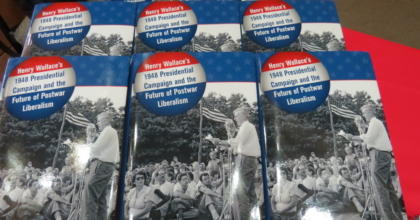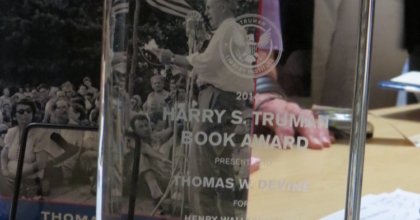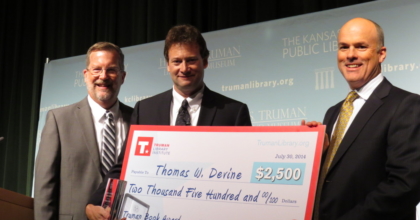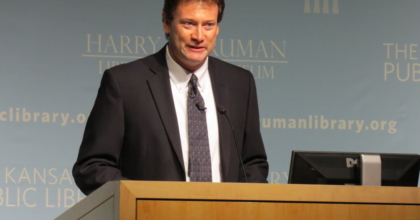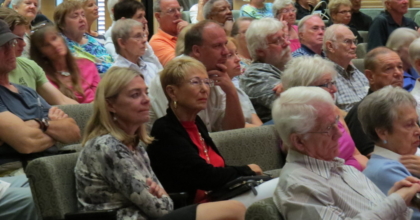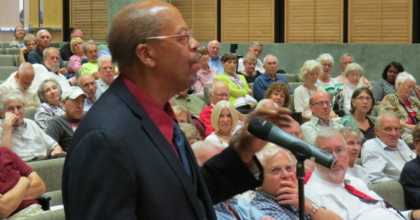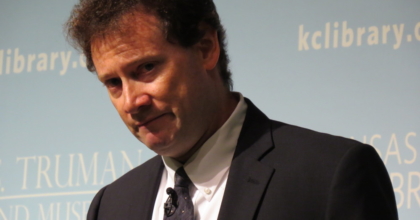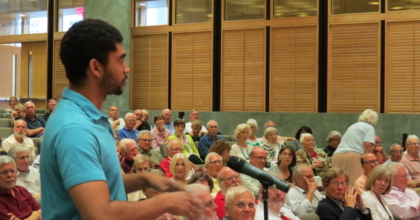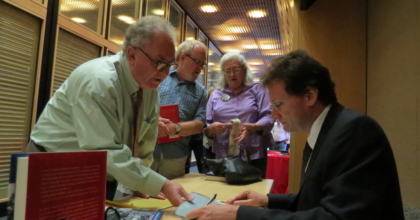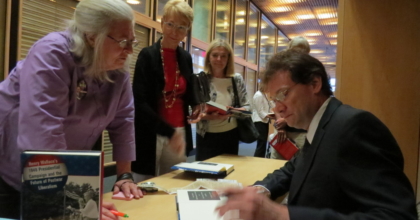2014 Harry S. Truman Book Award | July 31, 2014
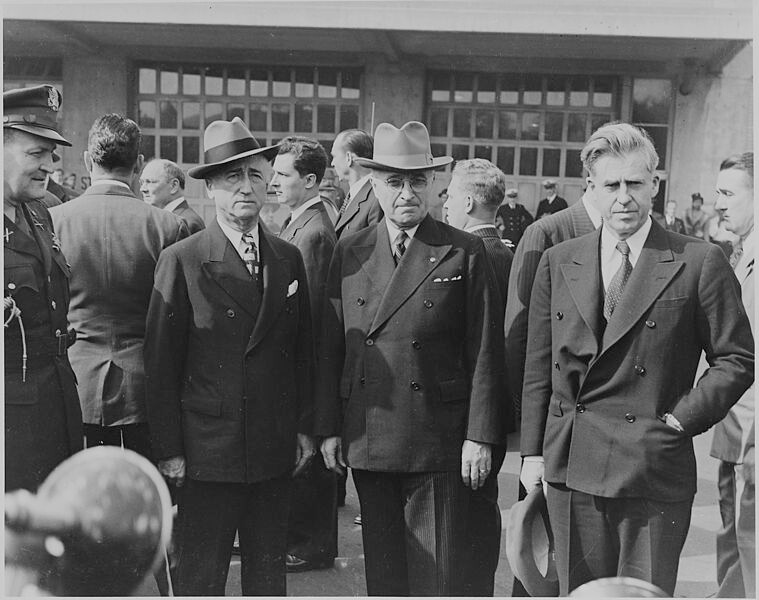
Henry Wallace’s 1948 Presidential Campaign and the Future of Postwar Liberalism
Henry Wallace’s 1948 bid for the presidency stands as a bold experiment in American third-party politics. Some hail Wallace for challenging the Cold War drift toward “reaction” and “red- baiting.” Others depict Wallace as a pawn of the Communist Party. In his award-winning book, historian Thomas W. Devine sheds new light on this debate with an “exhaustively researched and elegantly argued” book that “places the Wallace campaign into a larger context of late 1940s post-Popular Front politics” (American Historical Review). In this TRU Magazine exclusive, Jeffrey Gall asks the author to tell us more.
JG: What led you to conduct research for and write this book on Henry Wallace and his 1948 presidential campaign?
TD: I was interested in both Cold War policies and the politics of labor and the left, and a study of the Wallace campaign seemed to encompass all of those interests. Beyond that, I didn’t find the work done on the campaign to be particularly convincing. During the 1970s, several scholars had hailed him as a prophetic and effective critic of the emerging Cold War consensus, implying that President Wallace would have been preferable to President Truman (a dubious claim that has recently been unearthed and reasserted by Oliver Stone). Others saw Wallace and the Progressives’ brand of popular front liberalism as “the road not taken” in postwar politics, suggesting that they were the “true” heirs to the New Deal who would have led the nation down a more social democratic path. This “missed opportunity” scenario just didn’t seem plausible to me. The standard account of the Progressive Party, Gideon’s Army, by Curtis MacDougall, a journalist who had himself been active in the party, was more than 40 years old and put forward a tendentious interpretation that significantly simplified and distorted various aspects of the campaign (a view of the book I later found out that Wallace himself shared). I thought it was time to take a fresh look at the campaign from a post-Cold War perspective.
JG: Your subtitle refers to the history of Postwar Liberalism — what impact did Wallace’s failed bid for president have on postwar politics?
TD: I think it had precisely the opposite effect it intended. Wallace’s two major goals were to challenge the emerging Cold War consensus on foreign policy, which he believed was excessively and reflexively anticommunist, and to broaden support for the more “advanced” aspects of the New Deal – more economic planning, significant expansion of the welfare state and more regulation of business. As a result of his candidacy, however, both Cold War critics and the “left wing” of the New Deal coalition became associated in the public mind with communism.” In fact, criticism of Truman’s containment policies waned since many did not wish to be associated with Wallace or the Communists who were supporting him.
JG: Your book highlights the significant role played by the American Communist Party in Wallace’s campaign. What was the result?
TD: In deciding to back Wallace so vociferously, the Communist Party signed its own death warrant. The Party severed its ties with organized labor in the CIO, independent liberals, and the left wing of the Democratic party. It’s hard to fathom how party leaders did not see how self-destructive they were being, but they believed that their course of action had Moscow’s blessing – there’s no evidence that it did, by the way – and so they pursued it. The Communist Party’s vocal involvement in the campaign insured the Progressive Party would never attract a road base of followers. Wallace came to see this in later years and resented the Communist Party for ruining his campaign for peace, though at the time he welcomed Communist support.
JG: What impact did the Wallace bid have on the 1948 election overall — did his candidacy help or hurt Truman overall?
TD: I would say it definitely helped Truman. The founding of the third party enabled the Democrats to disown their very unpopular pro-Soviet left wing and welcome more moderate voters – working class ethnics and Catholics in particular – back into the fold. Had the Democrats been saddled with the crowd that ended up voting for Wallace, the Republicans would have attacked them far more vigorously than they did for being “soft” on communism, and, given the political atmosphere at the time, these attacks would have cost the Democrats.
JG: What is Henry Wallace’s most significant legacy?
TD: Wallace made more of a mark in agriculture and genetics than he did in politics. He was a symbol of the New Deal for many liberals in the 1930s and 1940s, but his presidential run in 1948, I believe, was a mistake.
Public Program and Award Ceremony
Thomas W. Devine is professor of history at California State University, Northridge, and winner of the 2014 Harry S. Truman Book Award, presented on July 30, 2014 by the Truman Library Institute at a public program in Kansas City, Missouri. Jeffrey Gall is professor of history at Truman University and chair of the Harry S. Truman Book Award Committee (2011-2014).


